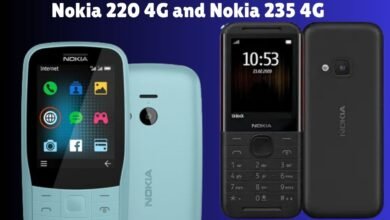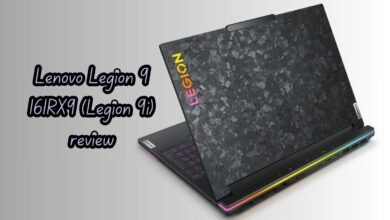New Microsoft update enables direct file sharing from Windows 11 to Android
Discover the new Microsoft update that enables direct file sharing from Windows 11 to Android. Enhance your cross-device experience today.

Microsoft has recently rolled out a significant update to Windows 11, fundamentally transforming the way users interact with their Android devices. This new feature facilitates direct file sharing between Windows 11 and Android, marking a significant milestone in cross-platform compatibility. By enabling seamless file transfers, Microsoft aims to enhance user experience through increased convenience and efficiency.
The update is particularly noteworthy as it aligns with Microsoft’s ongoing efforts to bridge the gap between different operating systems. Historically, transferring files between Windows and Android has required third-party applications or cumbersome manual methods, often leading to frustration for users. With this update, Microsoft demonstrates its commitment to improving interoperability, making it easier for users to manage their digital ecosystems.
Moreover, this update reflects Microsoft’s broader strategy to create a cohesive and integrated technological environment. By simplifying file sharing processes, Microsoft ensures that users spend less time managing compatibility issues and more time focusing on productivity and creativity. This development is not just a technical enhancement; it signifies a step towards a more interconnected and user-friendly digital landscape.
In addition to improving cross-platform functionality, this update is a testament to Microsoft’s dedication to meeting the evolving needs of its user base. Understanding the increasing reliance on mobile devices, Microsoft has taken a proactive approach to ensure Windows 11 remains relevant and adaptable in a fast-paced, multi-device world. This feature is expected to be particularly beneficial for professionals, students, and everyday users who frequently interact with both Windows and Android devices.
Overall, the new update is an essential advancement in the realm of digital interoperability. It underscores Microsoft’s mission to provide seamless and efficient solutions that cater to the diverse requirements of its global user community. This update not only enhances the practical utility of Windows 11 but also sets a precedent for future innovations in cross-platform integration.
How to Use the Direct File Sharing Feature
The new direct file sharing feature between Windows 11 and Android is designed to streamline the process of transferring files. To get started, you’ll need to ensure both your Windows 11 PC and Android device meet specific prerequisites and have the necessary settings enabled.
Prerequisites:
- Windows 11 version 21H2 or later
- Android version 10 or later
- Both devices connected to the same Wi-Fi network
Setting Up on Windows 11:
- Open the Settings app on your Windows 11 PC.
- Navigate to Devices and select Bluetooth & devices.
- Ensure Bluetooth is turned on.
- Select Send or receive files via Bluetooth.
- Choose the Send files option.
Setting Up on Android:
- Open the Settings app on your Android device.
- Navigate to Connected devices and select Bluetooth.
- Ensure Bluetooth is turned on.
- Pair your Android device with your Windows 11 PC.
Transferring Files:
- On your Windows 11 PC, select the file you wish to share.
- Right-click the file and choose Share, then select your paired Android device from the list.
- On your Android device, accept the incoming file transfer request.
Troubleshooting Common Issues:
- Bluetooth not connecting: Ensure both devices are in close proximity and Bluetooth is enabled on both.
- File transfer fails: Verify that both devices are on the same Wi-Fi network and try restarting Bluetooth.
- Device not visible: Ensure the Android device is discoverable in the Bluetooth settings.
By following these steps, you can efficiently use the direct file sharing feature to transfer files between your Windows 11 PC and Android device, making the process hassle-free and efficient.
Specifications and Technical Aspects
The new Microsoft update brings a seamless direct file sharing feature between Windows 11 and Android devices, making the transfer of files more efficient. To leverage this feature, there are certain technical specifications and requirements that need to be met for both platforms.
For Windows 11, the minimum system requirements include:
- Operating System: Windows 11 (version 21H2 or later)
- Processor: 1 GHz or faster with at least 2 cores on a compatible 64-bit processor or System on a Chip (SoC)
- Memory: 4 GB RAM
- Storage: 64 GB or larger storage device
- DirectX: DirectX 12 compatible graphics / WDDM 2.x
- Network: Wi-Fi or Bluetooth capability
For Android devices, the following requirements must be met:
- Operating System: Android 8.0 (Oreo) or later
- Memory: 1 GB RAM or more
- Storage: Sufficient free space for incoming files
- Network: Wi-Fi or Bluetooth capability
The direct file sharing feature utilizes both Wi-Fi and Bluetooth technologies to establish a connection between the devices. Depending on the file size and the network conditions, the system dynamically switches between these technologies to ensure optimal transfer speeds. Supported file types include documents, images, videos, audio files, and application packages, making it versatile for various usage scenarios.
Below is a comparative table showcasing the file sharing speeds and capabilities between the new Microsoft update and other prevalent methods:
| Method | Average Transfer Speed | Supported File Types | Ease of Use |
|---|---|---|---|
| Direct File Sharing (Wi-Fi/Bluetooth) | Up to 100 Mbps | Documents, Images, Videos, Audio, Applications | High |
| Email Attachment | Up to 10 Mbps | Documents, Images | Medium |
| Cloud Storage (e.g., OneDrive, Google Drive) | Varies (dependent on internet speed) | Documents, Images, Videos, Audio, Applications | Medium |
| USB Transfer | 60-480 Mbps (USB 2.0), 5-10 Gbps (USB 3.0) | All | Low |
This new feature not only provides a high-speed alternative to traditional methods but also simplifies the user experience, making it a highly anticipated addition to the Windows 11 ecosystem.
Pros
The new direct file sharing feature in Windows 11 offers several advantages that can significantly enhance user experience. Below is a table outlining the primary benefits:
| Pros | … |
| Ease of Use | The feature is designed for simplicity, allowing users to share files with just a few clicks. |
| Speed | Direct file sharing provides faster transfer rates compared to traditional methods like email or cloud storage. |
| Improved Cross-Platform Integration | This feature enhances interoperability between Windows 11 and Android, facilitating seamless file exchanges. |
| Increased Productivity | By reducing the steps involved in file sharing, it helps users save time and focus on other tasks. |
Cons
Despite its numerous benefits, the direct file sharing feature also has some drawbacks that users should be aware of:
| Cons | … |
| Compatibility Issues | The feature may not work seamlessly with all Android devices, limiting its usefulness for some users. |
| Network Dependency | Both the Windows 11 PC and the Android device must be connected to the same network, which can be a limiting factor. |
| Security Concerns | Transferring files over a shared network could expose sensitive information to potential vulnerabilities. |
| Software Updates | Users may need to update their devices frequently to ensure compatibility and optimal performance. |
- Balancing Fitness and Work: Overcoming Challenges and Leveraging Technology
- How’s your Pixel Watch 2 holding up?
- What Is Data Exfiltration? How Can You Stop It Happening to You?
Balancing the pros and cons of the new direct file sharing feature in Windows 11, it is clear that this update offers significant improvements in ease of use and speed. However, users should consider potential limitations like compatibility issues and network dependency. Evaluating these factors can help users determine whether this feature aligns with their specific needs and enhances their overall computing experience.



